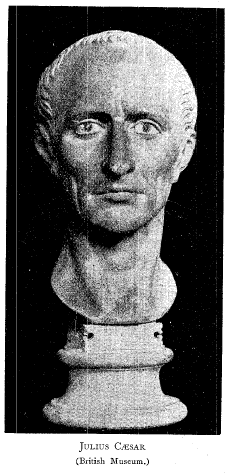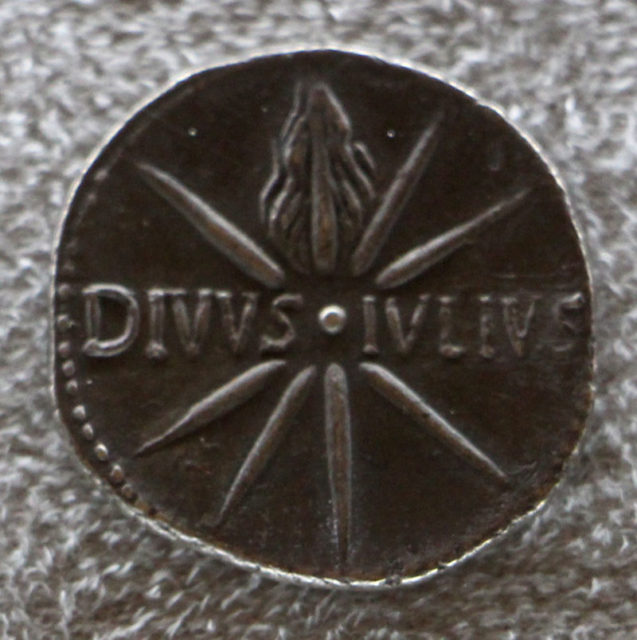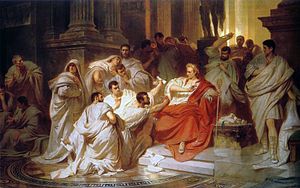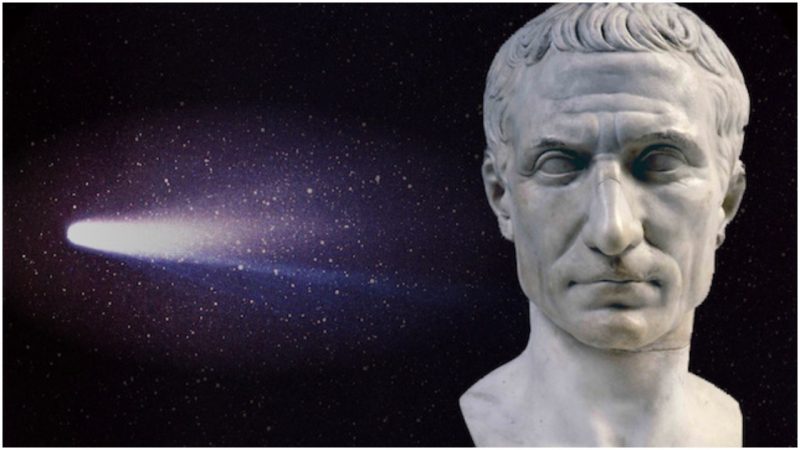Comets are fascinating phenomena that make us gaze up at the sky in awe. Due to the achievements of modern science, we now see them as beautiful but entirely explainable natural occurrences. However, these majestic celestial bodies have been observed and recorded since ancient times, and those stargazers often saw them as omens or messages from their gods. One particular comet, nowadays known as Sidus Iulium or Julian Star, the Star of Caesar, was so significant that it influenced the course of history.
Roman General Julius Caesar rose to power after filling various lesser positions in the government. He eventually acquired an unmatched military power and established a strong centralized rule. The regular folk of Rome loved him because of his progressive social reforms, but many senators and noblemen were afraid that he might proclaim himself king and replace the Roman republic with an empire. The paranoid senators took steps to prevent this, and Caesar was assassinated by a group of conspirators in March of 44BC.
Four months after Caesar died, a grand funerary festival named Ludi Victoriae Caesaris was organized in his honor. During the festival, a very bright object appeared in the sky and transfixed the people of Rome.

Since Caesar once claimed that he was a descendant of the goddess Venus, many Romans concluded that Caesar had become a deity and that the bright object was actually a new star containing Caesar’s soul. More than 100 years later, famous Roman historian Suetonius wrote, “A star shone for seven successive days, rising about the eleventh hour, and was believed to be the soul of Caesar.”

The bright object was actually a comet, and contemporary astronomers believe that it may have been one of the brightest comets ever observed by humans. In 1997, two researchers from the University of Illinois published a book titled The Comet of 44 BC and Caesar’s Funeral Games in which they compared the astronomical and astrological records of Ancient Rome to those of Ancient China.

They concluded that the comet was visible across the world and that it was indeed unbelievably bright. Unfortunately, humanity will most likely never see the Star of Caesar again: its velocity increased as it grazed Earth’s orbit and it ended up being ejected out of our solar system.

The notion of Caesar’s soul in the sky above them amazed the Romans and convinced them that Caesar had joined the gods. This proved to be a great political development for Caesar’s heir and successor, his adopted nephew Gaius Octavius. Octavian used the Star of Caesar as a powerful symbol of propaganda: he built the Temple of the Deified Iulius, also known as the Temple of the Comet Star, and initiated the founding of a cult that worshipped Caesar as one of the gods. At that time, most common citizens of Rome believed that Caesar really watched over them alongside other gods. They supported the deification of Caesar initiated by Gaius Octavian, and they gradually began supporting all of his political ideas.

Gaius Octavius strategically used this to his political advantage. He set out and fulfilled the goals set by Julius Caesar. Senators and aristocrats who opposed his imperialistic tendencies were vastly outnumbered by his supporters.

He soon renamed himself Augustus, hunted down all senators who had been involved in the conspiracy to kill Caesar, and quickly assumed absolute power. He then founded the Roman Principate and became the first Emperor of the Roman Empire.
During his turbulent reign, which lasted for 40 years, he used the comet on his insignia and the goddess Venus to be included on new Roman coins.
You could say that he was the only known emperor in history to literally receive help from the heavens.
